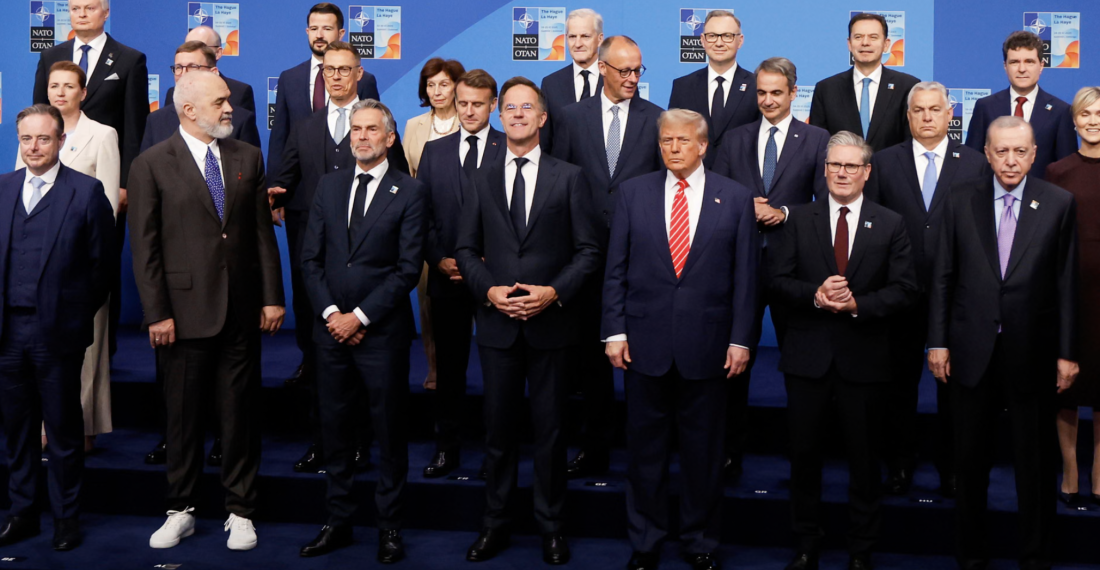On Wednesday afternoon (25 June), NATO member states unanimously agreed to increase the NATO standard for defence spending to 5 per cent of GDP over the next ten years. This is stated in the final joint declaration of the NATO summit in The Hague, published on the same day.
In a joint declaration, the alliance stated that they are "united in the face of profound security threats and challenges", particularly the long-term threat to Euro-Atlantic security posed by Russia and the "persistent threat" of terrorism.
'Allies commit to invest" 5% of GDP annually in core defence requirements, as well as defence- and security-related spending, by 2035 to ensure our individual and collective obligations,' it continued.
The 5% figure comprises “at least” 3.5% of GDP that should be spent on “pure” defence, with the remainder going to security and defence-related “critical infrastructure” to ensure, according to the statement, “our civil preparedness and resilience, unleash innovation, and strengthen our defence industrial base”.
Following pushback from some member states, particularly Spain, allies will be required to submit annual plans showing a credible, incremental path to reach this goal, NATO said.
All the member states declared their 'unwavering' commitment to Article 5 of the NATO Charter, which states that an attack on one member state is considered an attack on the entire NATO alliance. Prior to the summit, US President Donald Trump had once again called this key NATO agreement into question.
The final declaration specifically cites the Russian threat as a reason for increasing collective defence spending.






